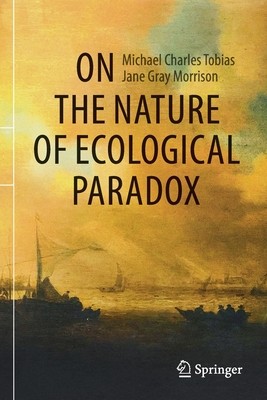
- We will send in 10–14 business days.
- Author: Michael Charles Tobias
- Publisher: Springer
- ISBN-10: 3030645282
- ISBN-13: 9783030645281
- Format: 15.6 x 23.4 x 4.7 cm, minkšti viršeliai
- Language: English
- SAVE -10% with code: EXTRA
Reviews
Description
This work is a large, powerfully illustrated interdisciplinary natural sciences volume, the first of its kind to examine the critically important nature of ecological paradox, through an abundance of lenses: the biological sciences, taxonomy, archaeology, geopolitical history, comparative ethics, literature, philosophy, the history of science, human geography, population ecology, epistemology, anthropology, demographics, and futurism.
The ecological paradox suggests that the human biological-and from an insular perspective, successful-struggle to exist has come at the price of isolating H. sapiens from life-sustaining ecosystem services, and far too much of the biodiversity with which we find ourselves at crisis-level odds. It is a paradox dating back thousands of years, implicating millennia of human machinations that have been utterly ruinous to biological baselines. Those metrics are examined from numerous multidisciplinary approaches in this thoroughly original work, which aids readers, particularly natural history students, who aspire to grasp the far-reaching dimensions of the Anthropocene, as it affects every facet of human experience, past, present and future, and the rest of planetary sentience.
With a Preface by Dr. Gerald Wayne Clough, former Secretary of the Smithsonian Institution and President Emeritus of the Georgia Institute of Technology. Foreword by Robert Gillespie, President of the non-profit, Population Communication.
EXTRA 10 % discount with code: EXTRA
The promotion ends in 22d.23:28:46
The discount code is valid when purchasing from 10 €. Discounts do not stack.
- Author: Michael Charles Tobias
- Publisher: Springer
- ISBN-10: 3030645282
- ISBN-13: 9783030645281
- Format: 15.6 x 23.4 x 4.7 cm, minkšti viršeliai
- Language: English English
This work is a large, powerfully illustrated interdisciplinary natural sciences volume, the first of its kind to examine the critically important nature of ecological paradox, through an abundance of lenses: the biological sciences, taxonomy, archaeology, geopolitical history, comparative ethics, literature, philosophy, the history of science, human geography, population ecology, epistemology, anthropology, demographics, and futurism.
The ecological paradox suggests that the human biological-and from an insular perspective, successful-struggle to exist has come at the price of isolating H. sapiens from life-sustaining ecosystem services, and far too much of the biodiversity with which we find ourselves at crisis-level odds. It is a paradox dating back thousands of years, implicating millennia of human machinations that have been utterly ruinous to biological baselines. Those metrics are examined from numerous multidisciplinary approaches in this thoroughly original work, which aids readers, particularly natural history students, who aspire to grasp the far-reaching dimensions of the Anthropocene, as it affects every facet of human experience, past, present and future, and the rest of planetary sentience.
With a Preface by Dr. Gerald Wayne Clough, former Secretary of the Smithsonian Institution and President Emeritus of the Georgia Institute of Technology. Foreword by Robert Gillespie, President of the non-profit, Population Communication.


Reviews